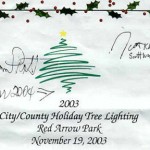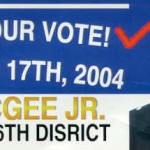Art Jones Pension better than $100K per year
Usually it is only rich guys who enter public service for the “service.” However lofty the intentions of our elected full-time representatives money is usually a factor. Not so for Art Jones! He’s getting piles of it already. Jones retired as Milwaukee police chief on November 19th last year, at the age of 57, and was immediately eligible to receive a pension. He chose a survivorship option, which reduced his monthly payment to only $9,786.97 per month instead of the $10,937.61 he was eligible to receive based on his 36 years of service as a police officer. Jones also picked up a lump sum bonus check of $67,057 when he walked out the door. His $117,443 annual pension is not much less than the $130,000 or so he could expect to earn as mayor, so it is nice to know that Jones will have something to fall back on in the event that the public does not elect him mayor.
(Interesting sideline: One month of Jones’s pension income is more than the total pension – every single penny – received by former Mayor Frank Zeidler for his 12 years service as mayor. Mr. Socialist, who is still alive and could probably use the money, worked in a day when public pensions did not have quite the impact on the public purse they have today.)
Another mayoral candidate, Tom Nardelli, did request an estimate of his future pension, assuming a July 4, 2004 retirement date, when he will turn 60. The city figures he would receive $2,368 a month along with a lump sum bonus of approximately $13,900. These figures could be reduced if Nardelli chose a survivorship option.
Acting Mayor Pratt replaced himself on the Annuity and Pension Board with Bobbie Webber on October 16, 2003. Webber will serve until the next Common Council President determines who will be his or her three appointees to the board.
Last Laugh: Local attorney leaves over a million to his four children – and even more to his house – The Hilarious Last Will and Testament of George Miller Chester
A couple of decades ago, George M. Chester, an attorney for Foley and Lardner, appeared in a suburban municipal court to represent a friend’s son who had been involved in a minor mishap. When the judge asked Chester a routine question about his expertise, he answered, “Your honor, I specialize in corporate takeovers and disorderly conduct cases.” Chester, who died at 81 last year on March first, was legendary in Milwaukee for his wit as well as his wealth. His funeral at St. Paul’s Episcopal Church was attended by the city’s bluebloods along with a scattering of friends he had made over the years – people a daughter, at the service, referred to as “unusual individuals from the fringes of respectability.” Outside the church a horse and a llama from Chester Farms stood grazing in the shadow of the Edward Townsend Mix building, to the delight of some, and to the consternation of others. That was George. The Wall Street Journal had once written a front page profile of Chester; his witty annual reports for the Wisconsin Securities Company of Delaware (now Wisconsin Securities Partners), a family holding company, were the equal of the celebrated Warren Buffett Berkshire Hathaway shareholder messages.
Kids as rich as Kennedys
His final witty missive can now be found in the Milwaukee County Courthouse, and it is worthwhile to recount a few passages from his Last Will and Testament. The chuckles begin with the first sentence:
“I George Miller Chester, domiciled in the City and the County of Milwaukee, but one whose heart belongs to Aspen, Colorado …” is the way it starts. A few sentences later he quotes a second grader who had visited his farm: “for an old man you can sure run fast after your llama.” Chester mentioned his wishes for a memorial service, “I prefer cremation and a memorial service that does not interfere unduly with golf.”
Even in handing out money, it came with a witticism. When he was about to make his children as wealthy as the Kennedys, he did it with these words: “I want them to note that the amount of these bequests is the same amount bequeathed by Mrs. Jacqueline Kennedy Onassis to John and Caroline. It would be pretentious for me to do more.” The children received $250,000 each, raised to $350,000 in a codicil.
Don’t feel too sorry for them; like the Kennedys, the children were already heirs to family trusts, where long-term, multigenerational family fortunes most often reside. Chester made numerous five-figure grants to relatives and associates, including his many nieces, nephews and grandchildren.
The Widow’s Mite
His wife Margaret received three Northwestern Mutual Life Insurance Company policies on his life (he had been a trustee of the organization), property in Arizona, including the home where she lived for much of the year. In a wistful note, Chester regretted not spending more time there. Margaret Chester also received the penthouse apartment in the Regency condominium, down the hall from Sen. Herb Kohl, who caught Chester snitching his newspaper so often he simply bought an extra subscription. (When certain unusual individuals from the fringes of respectability would visit George Chester in his condo, he show off a picture of Michelangelo’s David he had hung in a closet.) There were numerous other bequests, but as is the case with most very wealthy people, much of Chester’s assets had been dispersed prior to death, or were in any number of family trusts, like the Wisconsin Securities Partners.
The trusts would be structured by the lawyers at Foley and Lardner, and then managed by the bankers at First Wisconsin Trust Company, both family companies. George Chester’s ancestors had founded Foley and Lardner, and the defunct Chapman’s Department Store. Three generations served on the board of First Wisconsin National Bank for over a century, until three years ago when George M. Chester, Jr. was removed from the board after the merger with U.S. Bank. Camp Margaret Chester is named after George Chester’s mother, a Girl Scout pioneer. These were simply the family’s local, relatively recent achievements.
George senior was a member of the Society of the Cincinnati, the most ancient and exclusive of America’s military societies, limited in membership to the oldest sons of descendants of officers in the Continental Army, of which the number never changes. George Washington was the group’s first president, and Alexander Hamilton its second. Thomas Jefferson had no use for the outfit, fearing that it would perpetuate a noble class in this country. (He may have been right.) The moment of George Senior’s death, George Chester, Jr. joined the ranks of the group. Junior is an attorney with Covington & Burling, of Washington, D.C., and the purchaser of thousands of acres of prime Virginia Hunt Country land.
$4 Million for the Lake House
George Chester honored a bit of his own primogeniture in his will in an unusual bequest to his lake house, built by his grandfather, Benjamin Kurtz Miller, who, like his grandson, was an attorney at Wisconsin’s oldest and largest law firm, then Miller Mack & Fairchild, and now Foley and Lardner.
“Broadoaks,” lies on the eastern shore of Oconomowoc Lake, on Pettit Road, and has had a fabled history both for the family and for the community, and, thanks to George Chester, it won’t be for sale any time soon, but will remain for his grandchildren to enjoy, just as he did as a grandchild. Broadoaks, although vast, is Spartan, in a way that only a country house with dozens of rooms can be Spartan, but it does require a certain amount of upkeep, which now seems guaranteed. George Chester created the Broadoaks Trust, and in his will he endowed it with 100,000 shares of U.S. Bancorp stock and another 10,000 shares of Johnson Controls.
Margaret Chester also got 100,000 shares of U.S. Bank and 10,000 shares of Johnson Controls. A postmortem split has increased the Johnson Controls stock to 20,000 shares today.The USB stock is worth nearly $3 million, and the Johnson Controls another million and change. The two stocks spin off better than $100,000 per year in income, which is to be used for the maintenance of “gardens, piers, boats, tennis court and auxiliary buildings,” and to “pay taxes, insurance, maintenance, capital expenditures including the cost of a caretaker but not a housekeeper.” (Spartan.)
Chester’s initial cost basis for the U.S. Bank stock is mere pennies per share – not too many years ago he controlled better than five per cent of the First Wisconsin– and he was in no hurry to see his family sell the shares. In fact, the terms of the will prohibit it. “There is to be no invasion of principal and no diversification. … if the income is insufficient, beneficiaries will have to provide additional funds; if it is in excess, the balance accumulates.” The trust was set to terminate on January 20, 2010, according to the terms of the will, written in 2000, but a codicil extends the length of term to the tenth anniversary of Chester’s death, or March 1, 2012, when the grandchildren will be grown.
Written Out of the Will? Not so Bad for Two
Chester also made – and revoked – two $10,000 bequests in his will, one to Dr. Edward Buchanan of Brookfield “a friend and business associate” and the other to Steven A. Lopez, of San Francisco, and formerly of Milwaukee, where he met Chester as a young man about 25 years ago. Lopez was described as “a former employee, friend and horseback riding companion.” According to the third codicil to the will, the bequests were revoked because Chester made the gifts “during my lifetime for tax purposes.”
The $10,000 for Lopez was “unrestricted, but I hope it will be used in the furtherance of his education and to reduce the mortgage on his residence.”
Live from the Election Commission
If you’ve always wanted to see the look on the face of a guy who’s just discovered that he is about to get a guaranteed four years employment for the asking, then you should have been at the City Election Commission Tuesday January 6 when Comptroller W. Martin “Wally” Morics, C.P.A. realized that, once again, nobody was going to show up to run against him. No fundraising or campaigning needed! This will leave Morics plenty of time to concentrate on his profession as the city’s Chief Financial Officer, custodian of our sacred credit rating. At 4:56 p.m. Morics walked into the fifth floor office of the commission, and asked Julietta Henry, its director, “Am I good to go?” Well, there were still four minutes left before the deadline. Morics decided to wait in the lobby, saying, “don’t talk to me for 240 seconds.” (The man just lives for numbers.) Morics broke his self-imposed silence soon enough, to announce that he had refinanced $110 million in short term debt for the city. Taxpayers will pay less than one per cent interest for the loan. “I can’t believe nobody picked up on that. In fact with arbitrage lending, the city actually makes $1 million a year,” he said.
Bobot, Tom Barrett and Marvin Pratt were the only candidates to submit 3,000 signatures – the maximum (1500 is the minimum.) Sheriff David A. Clarke, Bobot was shocked to see, turned up with only 1,800 signatures, an exceedingly tepid effort. Clarke was seen in public many times not soliciting signatures, while the others were tethered to their clipboards for the duration.
By the next evening the Bobot headquarters was alive with staffers checking questionable signatures on the Clarke petitions, surrounded by the ubiquitous “Bobot was here” signs. … If you visit Fitzgibbons Pub at 1123 N. Water Street, you‘ll see that all it takes is a little fluorescent green sticker to change “BOBOT WAS HERE” to “ROBOT WAS HERE.” “Well that doesn’t bother me,” Bobot said, but in some area my ‘MORE POLICE’ and ‘SAFER STREETS’ signs are being uprooted … Campaign adviser Mary Clare Fagin made it clear that she felt Clarke’s effort represented laziness, pure and simple. She complained about the short amount of time available to challenge signatures, and the nuisance of waiting for copies of petitions to challenge. Certainly the labor-intensive system could be improved, especially since the city used to hire extra workers during such periods. One staff member Tuesday was kept busy time-stamping thousands of pages by hand. You’d think that the pages could just as easily be scanned to a data base, and available to all, immediately.
The Election Commission will declare Clarke’s fate Tuesday, just before an I.C.C. fundraiser.
Footnote
Clarke, the darling of talk radio, announced last Tuesday that Ulice Payne would advise him on his campaign, and would appear at a Clarke fundraiser at the Italian Community Center , 631 E. Chicago St., on Tuesday, January 13th, which could prove to be a fateful one for him, since it is not certain he will have enough signatures, which could put a damper on things. Former U.S. Rep. J.C. Watts is the special guest; a reception with the hosts will run you $500, or a thousand if you want a picture taken. Regular entry is $25.
(In case you’re wondering, Payne did not sign Clarke’s nomination papers. He lives in River Hills.)
Coming Up: The Fundraising Season Resumes
Now that the signatures are in, the fundraising season has resumed.
On Monday, January 12th Teri Regano hosts Alderman Mike D’Amato (3rd) from 5 – 7 p.m. at Regano’s Roman Coin Tavern, 1004 East Brady Street. … D’Amato then heads north to Linneman’s Riverwest Inn, 1001 E. Locust St. from 7 – 9 p.m. … County Executive candidate Joe Klein promises to “put the fun back into fundraisers,” with a 5 – 8 p.m. event Thursday January 15th at Lakefront Brewery Palm Garden, 1872 N. Commerce Street. Music by the Riverwest Accordion Club and other entertainment Cash bar $10… At the very same time, American Serb Hall, 5101 W. Oklahoma Ave., will be the site of an event where the Republican Party of Wisconsin will host a reception honoring Scott Walker, the incumbent County Executive, nominally a non-partisan office. A $250 photo op opens the event from 5:30 – 6:30 p.m., the doors open to the general public ($25 a head) at 6:30 p.m. … On Friday January 16th, aldermanic candidate Calvin Lee (6th) plans a neighborhood fundraiser event at the Greer Oaks Art Gallery, 2463 N. Palmer Street from 5 – 9 p.m. …David Riemer will be at the Y-NOT-Y-NOT-Y-NOT on Kenilworth on Tuesday January 20th for a fundraiser. The county executive candidate capped off a busy Saturday morning of campaigning with a stop at the Central Library where he picked up a stack of CDs and videocassettes. He’s one of those who listen to books while driving. … In case you’ve forgotten why these guys raise funds, U.S. Senate candidate, republican Tim Michels, announces that his campaign to unseat democrat Russ Feingold has raised over $1 million. The money came from 6,328 people who have contributed $552,826 to his campaign. Over 95% of the donors gave less that $200, with $87 the average gift. (This is considered “grassroots” funding by Republican standards.) The candidate announced that he has loaned his campaign “an additional $250,000” to bring the total to $1,052,826.
GENUINE AUTOGRAPHS OF OUR COMMUNITY’S TWO MOST POWERFUL OFFICEHOLDERS
Back in November when he signed this program for me, Marvin Pratt was still just an alderman, but he clearly had his mind on the big prize, since he signed it “Mayor 2004” with a little arrow that is supposed to mean “and for some time thereafter.” At the same event, County Executive Scott Walker also signed his autograph – twice – once in cursive script, like a CEO would do on an annual report, and then in block letters, so you’d know what it said.
“I NEED YOUR VOTE” (AND I COULD USE A DICTIONARY, TOO!)
Michael McGee, Jr. submitted 380 signatures to get on the ballot for the sixth district aldermanic seat. An adviser one of his opponents said, “and now he’s going to be littering the neighborhood with his shit.” Sure enough, on January 7th a friend gave me this flyer, reproduced in part, featuring McGee, Jr. looking like he’s dressed to go deer hunting, and maybe getting ready to sneeze. What struck me was the misspelling of the word, “district.” McGee favors affordable housing and says “‘NO’ to overnight parking tickets.” Other candidates who have submitted papers for the new sixth district include incumbent Marlene Johnson-Odom, Payton P. Anderson, Calvin Lee, George Sanders, Ervin L. Weatherby, Jr. and Patricia A. Winding. The election is February 17th.
Fourth Street Forum Schedule, January 2004
January 8th
Panelists: Jim Carpenter, Lecturer, Economics Dept., MATC and former Green Party candidate; Alberta Darling, State Senator; Barbara Lawton, Lt. Governor; and Ed Thompson, Chair, Libertarian Party of WI
Moderator:Jack Murtaugh, Co-Chair, 4th Street Forum Executive Committee
January 15th
Panelists: Bob Barr, JD, former U.S. Congressman & 21st Century Liberties Chair for Freedom & Privacy, American Conservative Union; Steven M. Biskupic, JD, U.S. Attorney, Eastern Dist. of WI; David Mitchell, Special Agent, FBI; and Nadine Strossen, JD, President, ACLU and Constitutional Law Professor, NY Law School
Moderator:Jack Murtaugh, Co-Chair, 4th Street Forum Executive Committee
January 22nd
Panelists: Kathleen A. Dolan, PhD, Associate Professor, Political Science Dept., UWM; Gladys Gonz·lez, Director, Lawyer Referral & Information Service, Milwaukee Bar Assoc; Todd Robert Murphy, President, Todd Robert Murphy Advertising & Public Relations; and Rev. Rolen Womack, Minister, Progressive Baptist Church
Moderator: E. Marie Broussard, 4th Street Forum Executive Committee Member
January 29th
Panelists: Sheila Cochran, Secretary Treasurer, Milwaukee County Labor Council; Curtiss E. Harris, Sr. Partner, Advantage Business Partners; Barry R. Mandel, President, Mandel Group; and Julia Taylor, President, Greater Milwaukee Committee
Moderator: Julilly Kohler, JD, Co-Chair, 4th Street Forum Executive Committee
When: Both Forums are from noon to 1:00 p.m., which Milwaukee Public Television (MPTV) tapes for later broadcast. (See below for the broadcast schedule.) If you can spare the time, stay for an additional 30 minutes of question and answer with the panelists.
Where: Milwaukee Turners Hall, 1034 N. 4th Street (2nd floor)
Note: Forums are free and open to the public. Bring your own lunch or purchase it from the Historic Turners Restaurant. MPTV Channel 10/36 broadcasts the afternoon forums on Channel 10, Friday at 10 p.m. and again on Channel 36, Sunday at 3 p.m.
Questions? Call (414-272-2833) or email martindock@aol.com
Deidre A. Martin, Program Director of 4th Street Forum.
4th Street Forum is a program of the Milwaukee Turners with co-sponsors, Milwaukee Public Television and UWM Milwaukee Idea and the Center for Urban Initiative and Research. 4th Street Forum is dedicated to promoting a healthy democracy through open and substantive public discussion.
Political Contributions Tracker
Displaying political contributions between people mentioned in this story. Learn more.
- July 7, 2019 - Vincent Bobot received $50 from Bobbie Webber
- September 14, 2017 - Tom Barrett received $50 from Vincent Bobot
- June 29, 2017 - Tom Barrett received $1,000 from Herb Kohl
- March 28, 2016 - Michael Murphy received $50 from Vincent Bobot
- March 28, 2016 - Michael Murphy received $500 from Wally Morics
- March 3, 2016 - Tom Barrett received $5,000 from Herb Kohl
- December 30, 2015 - Tom Barrett received $500 from Joe Klein
- November 3, 2015 - Tom Barrett received $400 from Julilly Kohler
Plenty of Horne
-
Notables Attend City Birthday Party
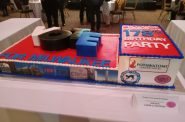 Jan 27th, 2024 by Michael Horne
Jan 27th, 2024 by Michael Horne
-
Will There Be a City Attorney Race?
 Nov 21st, 2023 by Michael Horne
Nov 21st, 2023 by Michael Horne
-
Sprecher Brewery Aims To Be National Soft Drink Leader
 Oct 20th, 2023 by Michael Horne
Oct 20th, 2023 by Michael Horne
The Roundup
-
Conservative Power Rises in Senate
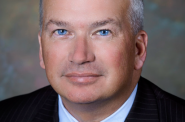 May 18th, 2015 by Steven Walters
May 18th, 2015 by Steven Walters
-
Buffett Tour on Hold
 Jun 27th, 2005 by Michael Horne
Jun 27th, 2005 by Michael Horne
-
Museum’s Wish List
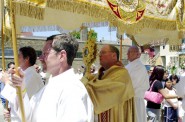 Jun 20th, 2005 by Michael Horne
Jun 20th, 2005 by Michael Horne


